Supernatural Monster Mythology Evolution: Leviathan
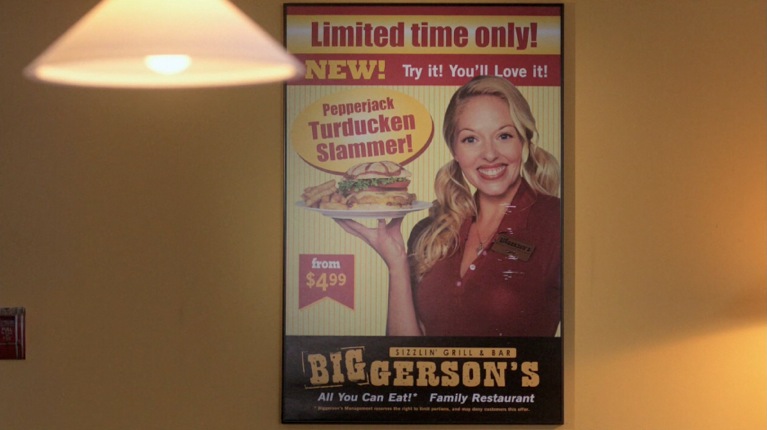
Over the 14 seasons of Supernatural, the scope and progression of the “monster” has undergone massive transformation. From its original horror movie foundations, Supernatural has grown to tell a deep, impactful story that transcends any monster of the week story arc formula, and so with it have the traditional monsters evolved. In this article series, we’re looking at some of the main “monsters” (traditional and not-so-traditional), how they’ve changed from their first meet-and-greet within Supernatural, significant lore revelations along the road, their impact on Sam and Dean, and their impact on the series in general. I’ll be citing the first appearance and the most recent significant appearance of each monster, but I exclude any alternate universe versions/hybrids or mentions. So far, we’ve covered Vampires, Djinn and Werewolves! This week, we’re looking at the oldest of monsters, the Leviathan!
Monster Mythology Part 4: Leviathan
The Leviathan, unlike many of the “monsters” that appear through Supernatural, are uniquely contained within a single season (save for the occasional random appearance thereafter – though largely inconsequential at that point). It is this exclusive, confined “journey” that lends the Leviathan to a storytelling tool, rather than giving them the type of distinct development arc that so many other monsters undergo.
First Appearance: 7:01 “Meet the New Boss”
Most Recent Significant Appearance: 7.23 “Survival of the Fittest”
In ancient Greek, the term “hubris” defined actions considered to shame and degrade the victims for pleasure and/or enjoyment of the abusers. More modern definitions of hubris denote overconfidence and an inflated or prideful nature – the accusations of hubris usually fall inline with the phrase, “pride goeth before the fall” or some version therein. When it comes to the Leviathan, as depicted in Supernatural, both definitions are very apt.
Where other “monsters” are a journey, an evolution through good and evil that parallels the maturity and self-awareness of Sam and Dean over the years in many respects, the Leviathan story is a hubris journey in every sense. It is simultaneously a cautionary tale and an inspiration, when Sam and Dean are pushed wholly and completely from their comforts and must begin anew.
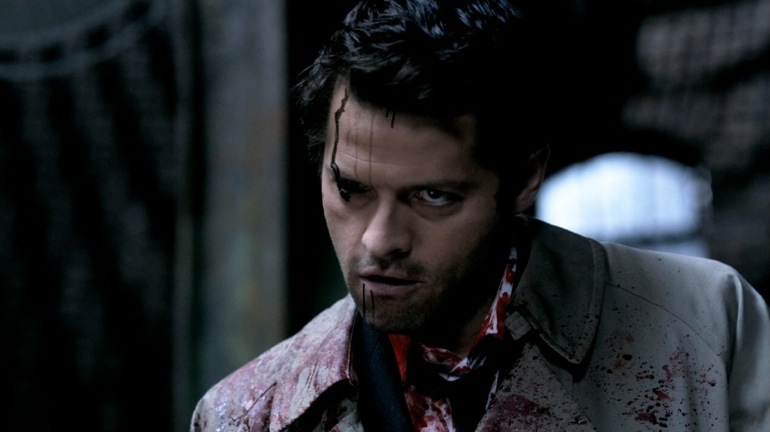
The Leviathan enter the story in an extreme act of pride and overconfidence on the part of Castiel. Turning again to the Greek-inspired definition of hubris, in Castiel’s actions we see the fatal shortcoming that leads to overconfidence – to the point where he takes steps to access the souls for power, and assumes “god-like” powers.
“I’m God. And if you stay in your place, you may live in my kingdom. If you rise up, I will strike you down.”
But, as in any true Greek tragedy (or any good writing), our angel is quickly reminded of his mortality. Castiel oversteps and tries to assume the role of God and literally erupts with power – resulting in the Leviathans flooding into the world.
“Cas is — he’s gone. He’s dead. We run the show now. Ah. Oh, this is going to be so much fun.”
Through pride we are ever deceiving ourselves. But deep down below the surface of the average conscience a still, small voice says to us, something is out of tune. – Carl Jung
The lesson about stepping out of their roles and trying to control everything is a running theme throughout the season to some extent, though subtler in the face of such a charismatic and cartoonish villain as Dick Roman. We see it first with Castiel as God, making poor choices (including with Sam) at every turn. Then again with Bobby’s choices as a ghost, and Dean’s decisions with the kitsune and the subsequent lie – all elements of trying to exert too much control and making arrogant decisions (“I know best” attitude) that ultimately backfire in spectacular ways. This is not to suggest you should never grow or explore beyond your boundaries of comfort – rather a lesson about overstepping and taking decisions from others.

One of the key storylines entangled with the Leviathan is Bobby’s death. More specifically, his decision to remain as a spirit after he dies. Not dissimilar to Castiel, his logic seems clear enough: spirits can be powerful, and this might give them an advantage against a powerful enemy. However, as time goes by and Bobby is less able to control his anger toward Dick Roman – he is less an asset than he is liability.
These are small examples of the hubris storyline playing out among our main characters (in sometimes terrible ways *cough* kitsune *cough*). The star of the show is undoubtedly the Leviathan, in two key ways.
First, the humiliation and degradation of others for their own pleasure – the classic hubris, if you will. The Leviathan had but one goal: world domination! This included eating people, but not like vampires or wendigo eat people. Rather, the Leviathan had in mind a view towards people-farming, and they weren’t shy about sharing their views on humanity either:
“Plain old people taste fine, but everything is better with cheese.”
The Turducken Slammers turned humans into mindless, thoughtless zombies, content to eat and be eaten. If that’s not shaming and humiliating, well, what is?
Specifically, Dick Roman and his minions also set their sights on Sam and Dean. Through the actions of the Leviathan, Sam and Dean are systematically stripped of everything that they have known and all the tools in their arsenal until this point: their anonymity, their car, their aliases, even Bobby, eventually. All the sources of their so-called power are stripped and they are (or appear to be) left bare.
Your ego decides the humanity in you – higher the ego lesser the humanity…. -Adil Adam Memon
Early in the season in “Slash Fiction”, the Leviathan assume the forms of Dean and Sam to go on a crime spree, in a remarkably public manner, in direct opposition to everything Sam and Dean fight for, by hurting people.

This act not only strips away the inconspicuousness critical for Sam and Dean’s work, it dishonours the Winchester name in a grossly public way. As a result, we see the boys forced to give up their standby aliases. Even the Impala is put on ice for a period of time. These aren’t just tools of the trade, they are comforts that the boys slip into and rely on to get their work done. Eventually, they even lose Bobby – a father figure and mentor.
However, while the Leviathan take aim at the major aspects of the Winchesters’ lives – and manage to successfully hit them hard in several areas – the monsters are wielding a double-edged sword. Sam and Dean, it can be argued, are truly fallen at one point: no Bobby, no Impala (a.k.a. home), notorious, wanted men.
“No weapons, no friends, no hope. Take all that away and what’s left?” (Buffy the Vampire Slayer, 2.22)
But come on – these are the Winchesters. Instead of choking on grief and loss, they rise anew. Circumstances force them to discover a totally new set of resources: Charlie, Frank, even the Alpha when the situation calls for it.
Inversely, as the Winchesters lose their foundations in every sense, the Leviathan grow more and more powerful. Where Sam and Dean rebuild and resource learn, the Leviathan count unhatched eggs and discount enemies, including the not-dead Sam and Dean Winchester and other monsters who feed on humans, who are not so excited about the Turducken plan.
He that is proud eats up himself: pride is his own glass, his own trumpet, his own chronicle. -Shakespeare
In spite of gross disparity between them, the end still comes down to man verses god in a straightforward game of wits. Here, dear viewers, is where the Leviathan story beautifully showcases the second, more modern side of hubris: pride goeth before the fall.
Ultimately the Leviathan, via Dick Roman, are tripped up by – what else – their own arrogance:
DICK: Did you really think you could trump me?
DEAN: Honestly? [He takes another bone out of his jacket.] No. Figured we’d have to catch you off guard.
Hubris, the modern definition, fully realized.
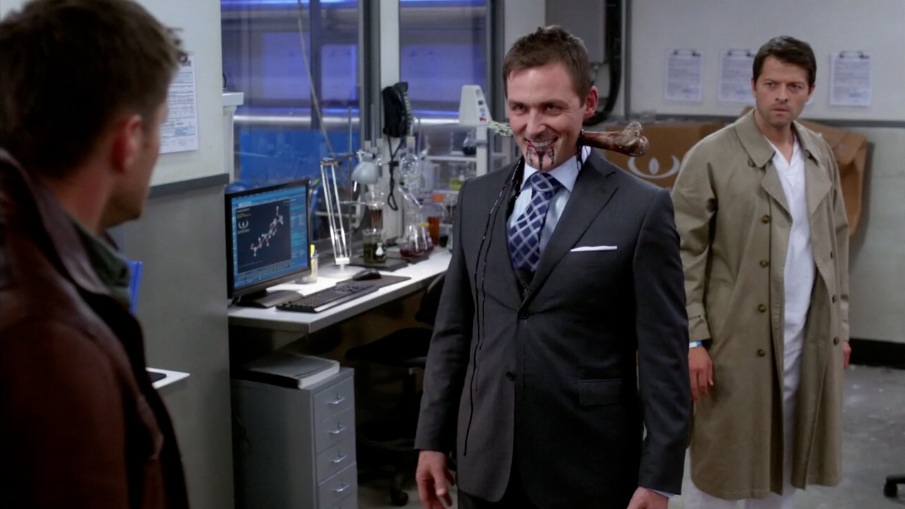
After all, how did that saying go? Right – pride goes before the fall, or the splat, as the case may be.
“Even great men bow before the Sun; it melts hubris into humility.” – Dejan Stojanovic
The Leviathan are not actually about a “creature” journey per se but the evolution – or de-evolution, if you will, that it enables the boys to undertake and the idea of flying too close to the sun. This theme is repeated through out the season in a host of ways, understated and overt.
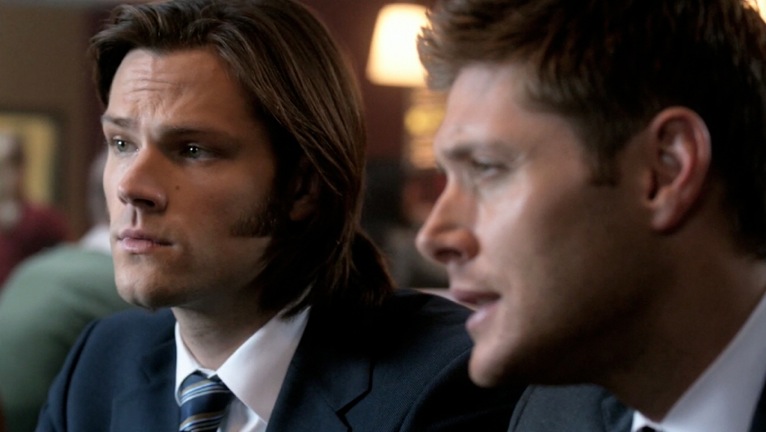
After all, it’s not about how big you are, or how powerful you are. Sam and Dean prove time and again that when you strip all this away, what’s left? A bad guy’s worst nightmare – pissed off Winchesters.
The Leviathan, love them or hate them, are one of the strongest, bare-faced allegories contained in a single-season: superiority is one’s undoing.
So what was your take-away from the Leviathan story-line? Even if you didn’t like the Leviathans overall, do you appreciate the fabulous arch-villainess that is Dick Roman? I mean, he screams Saturday-Morning cartoon so loud, I can’t help loving the guy.
Share below!
Want to learn even more about Supernatural’s Monsters? Try the insightful discussion by Bardicvoice: Supernatural University: On the Genesis and Regenesis of Monsters


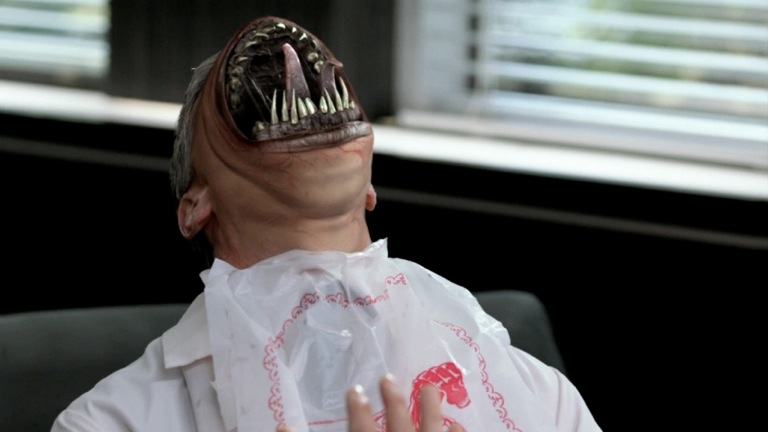
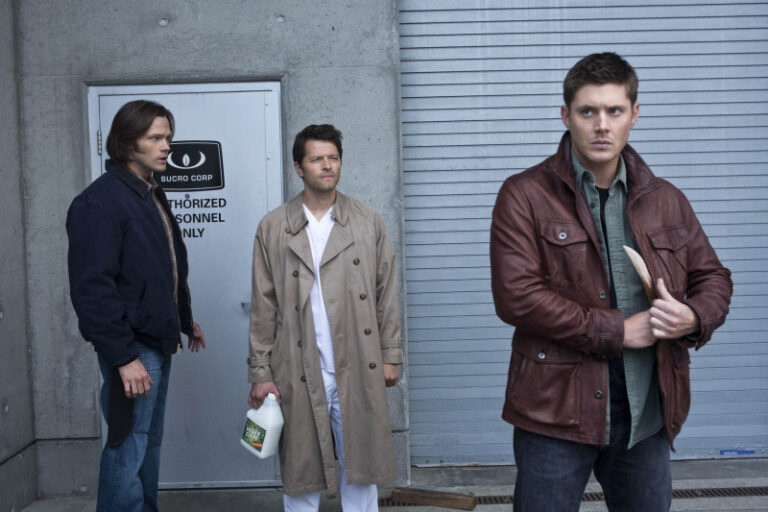
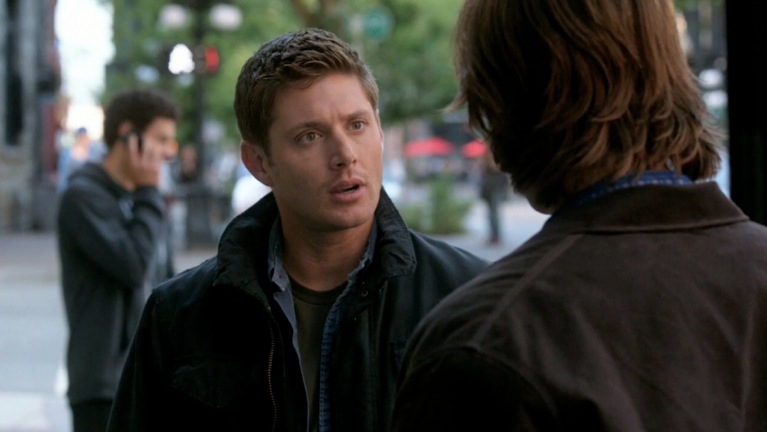
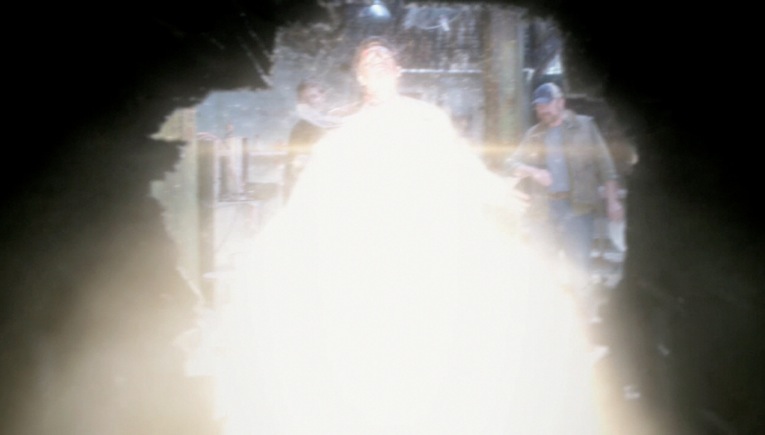
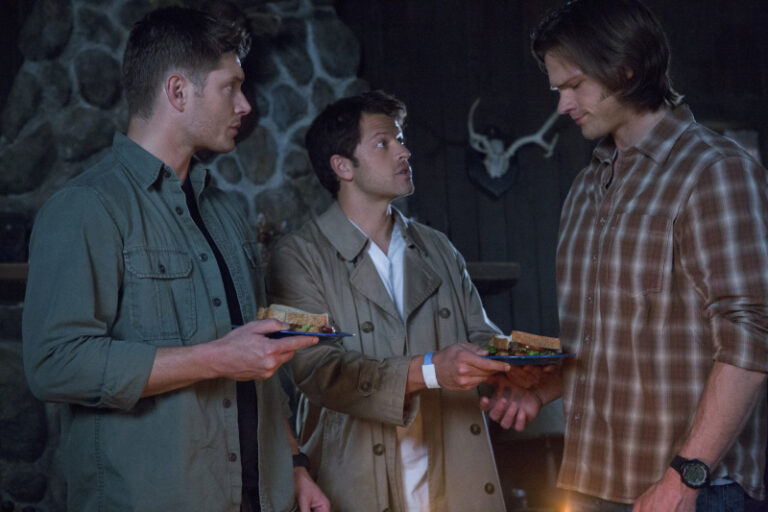

Leave a Reply